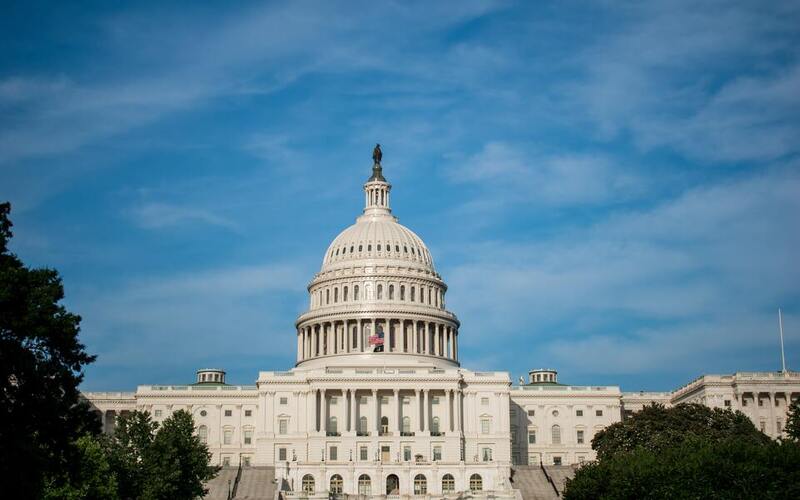Senate majority leader Chuck Schumer (D-NY) has made one thing very clear: he’s pro-weed. In a fundraising email to his supporters in March 2021, he was very transparent.
“Voters in four more states this election voted to legalize adult recreational use of marijuana, and that proves once again it’s past time to work to undo the harm done by misplaced priorities, particularly in the Black and brown communities,” he wrote. “It’s time to decriminalize marijuana nationally.”
Those are bold yet unsurprising words from the senator who has been voicing his opinion on cannabis legislation for years. Let’s see just how close the U.S. is getting to legalization.
The New Road to Legalization
The good news for cannabis patients and enthusiasts is that Schumer’s words are being backed up by action.
In the spring, Schumer started working with Senate Finance Committee Chairman Ron Wyden (D-OR) and Senator Cory Booker (D-NJ) to release a draft bill to end federal marijuana prohibition.
As this is written, Schumer has claimed the bill will be on the floor soon but has not indicated how soon that will be.
It’s also unclear at this time what specifically this bill will entail; however, there is speculation that it will establish decriminalization before enacting full legalization.
It’s expected to remove cannabis from the list of federally controlled substances as well as promote social equity.
Schumer has claimed the bill will specifically seek to restrict the ability of large alcohol and tobacco companies to overtake the industry and instead prioritize small businesses, particularly those owned by people from communities most impacted by prohibition.
In the House, Judiciary Chairman Jerrold Nadler (D-NY) said he plans to reintroduce his legalization bill, the Marijuana Opportunity, Reinvestment, and Expungement (MORE) Act, which cleared the House last year but did not advance in the GOP-controlled Senate.
With Democrats controlling the majority of both chambers, as well as the White House, there is a sense of optimism that comprehensive reform is achievable.
Step by Step, State by State
The 2020 election had four wins when it came to state-level legalization of marijuana. Arizona, New Jersey, South Dakota, and Montana all gathered enough votes to legalize recreational cannabis in their respective states, bringing the grand total of recreationally-legal states to fifteen.
Also, during the 2020 election, Mississippi voters approved a statute to legalize medical marijuana, a significant step for conservative states. However,
in May 2021, the effort took a step backward when the state’s highest court shot down the referendum, citing the fact that it did not meet a provision in the state’s Constitution requiring that 20% of signatures come from each of the five congressional districts (an impossible feat given that Mississippi went from five to four districts after 2000 and has failed to update the language in its Constitution). It’s believed to be the first time a medical marijuana initiative has been overturned after residents approved it at the ballot box. It remains to be seen if the issue will appear once again on 2022 ballots.
Minnesota and Nebraska are also expected to hand the issue over to voters in 2022 after their legalization bills failed to make it through their respective legislatures. To end on a positive note, Alabama Governor Kay Ivey signed a medical marijuana legalization bill into law in May 2021, marking another important step forward for conservative states.
Giving Hemp a Boost
Hemp was legalized under the 2018 Farm Bill, but the Food and Drug Administration has still not finalized the process to allow derivatives such as CBD to be used in consumable products like food, drinks, and dietary supplements. A new Senate bill hopes to change that.
Senators Ron Wyden (D-OR) (the same Senator working with Schumer on cannabis decriminalization), Rand Paul (R-KY), and Jeff Merkley (D-OR) have introduced the Hemp Access and Consumer Safety Act, which would exempt “hemp, hemp-derived cannabidiol, or a substance containing any other ingredient from hemp” from certain restrictions that have blocked the emergence of legal consumable hemp products.
The bill also states that officials may establish labeling and packaging requirements for hemp-derived products.
In a press release, Wyden explained, “CBD products are legally being used and produced across the nation. Yet because the FDA has failed to update its regulations, consumers and producers remain in a regulatory gray zone … It’s long past time for the FDA to get with the program, for the sake of the American consumers and farmers.” As this is written, the Bill has not yet passed. However, if or when it does, it would provide relief to hemp farmers, processors, and merchants all over the U.S. ϖ
Author
-
Alex Moersen is an Associate Editor at Cannabis & Tech Today, covering pop culture, science and technology, business, legislation, and much more. Twitter: @yaboii_shanoo








